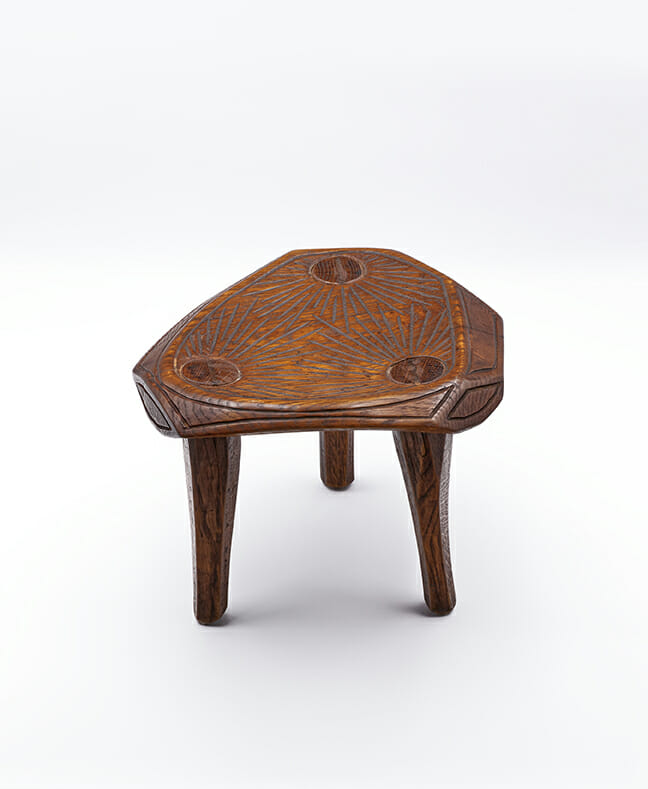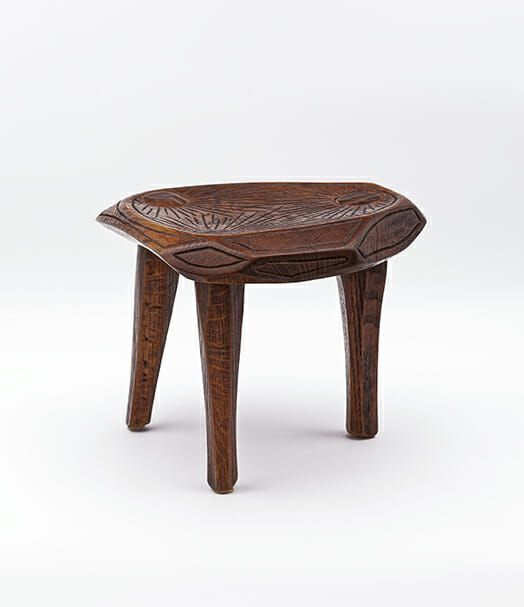Carved Three Legged Stool
Wharton Esherick
1931
Oak
11 x 11.5 x 12.5 inches
Collection of the Wharton Esherick Museum
Images courtesy of Eoin O’Neill
Esherick designed this stool for Sunekrest, the artist’s family home (now part of WEM’s collection). It’s abstract carved surfaces reflect similar approaches to design that Esherick would have seen during his 1930 trip to Germany, taken at the suggestion of patron Helene Koerting Fisher (and which resulted in several Expressionist furniture pieces for her home). They also represent a departure from the Arts and Crafts influenced representational carving that characterized his furniture only a few years prior. The seat and legs are not smooth and regular, but rather faceted so that each surface on the form differs slightly from the next. Carved lines create a border on each face while also re-emphasizing the singularity of these shapes. This stool was sited next to the fireplace, into which Esherick had laid a hammered copper hearth depicting a rising sun — a symbol that echoes the name of the property and which can be found throughout. With this in mind, the lines that radiate across the seat might be thought of as a geometric rendering of rays of sunlight.
Esherick revisited the three-legged stool form throughout his career. His variation on the theme from the 1950s reused wood scraps from larger projects to create the seats for stools that all differed slightly in their final form. These stools were among his most accessible and affordable — and popular — pieces.
To learn more about Sunekrest, please visit its page in Collections Highlights.


